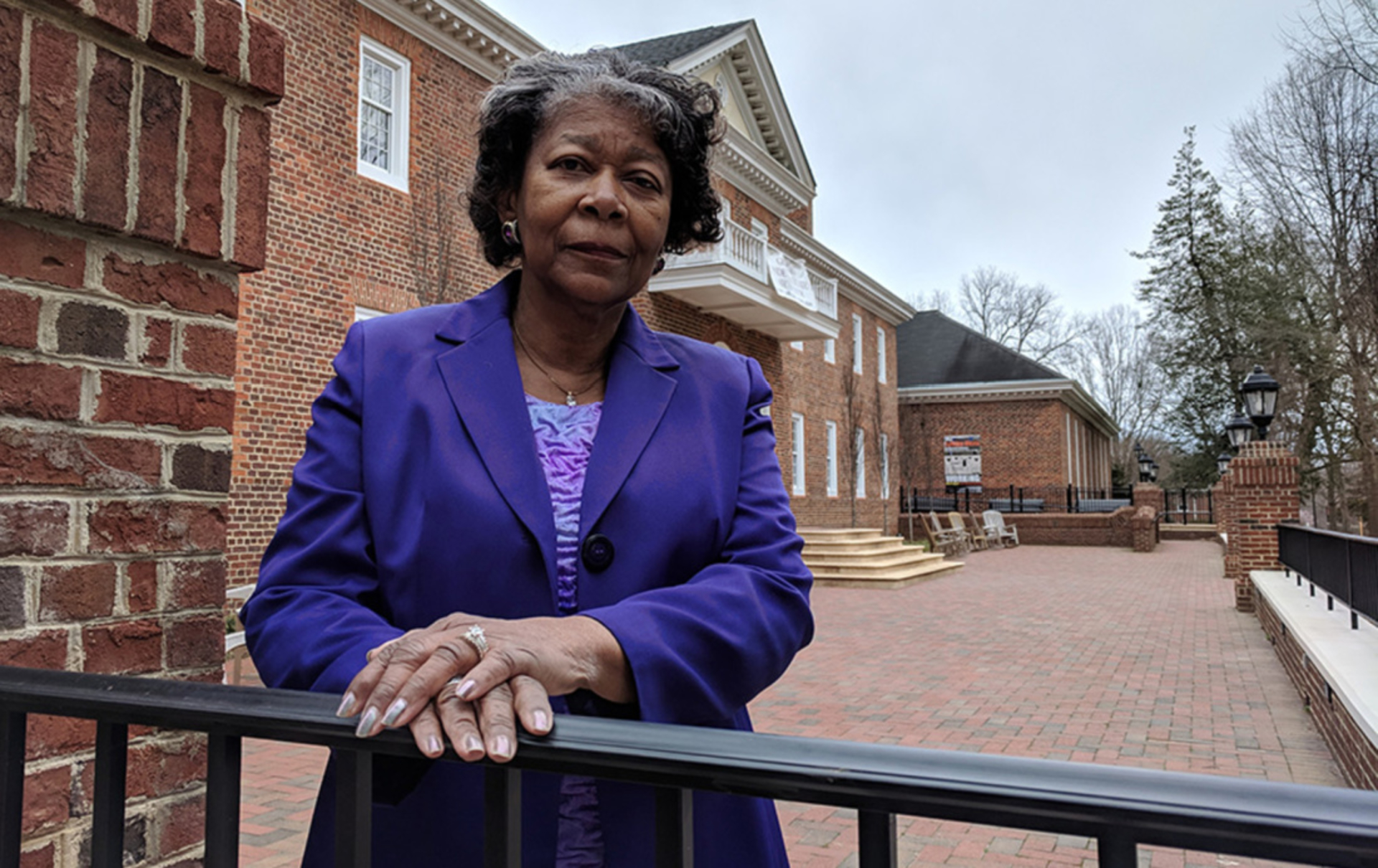
Gertrude Upperman '69, who died Aug. 2, understood history's place for her at Guilford. She spent years training the spotlight back on her College.
Gertude Upperman ’69 was among Guilford’s first African-American graduates, a notable achievement to be sure. But what she longed for was to be remembered just like her classmates.
Not as a pioneering Guilford graduate, not as an African-American Guilford graduate. Gertrude, who died Aug. 2 at the age of 76, was frequently described as both through the years. In the spirit of Quaker simplicity, Guilford graduate was fine by her.
Carletta Judd says her sister was proud of her role in shaping Guilford’s history, but that work paled to her passion for the College itself. “She paved the way for other Black students to follow at Guilford – and I’m sure she took pride in that – but her true pride came not in her accomplishments but in the College itself,” says Carletta. “She would brag about the College whenever she had the opportunity.”
Those opportunities came up often. Friends and family say it was not uncommon for Gertrude to drop a reference to her alma mater when she’d run into friends at the hair salon or waiting in line at the grocery store. “It was always Guilford this and Guilford that,” says Carletta smiling.
But her biggest stage, friends and family say, came Sunday mornings at Persimmon Grove AME Church – a short walk from the College – where she was a lifetime member.
“I can close my eyes and see Miss Gertrude dressed so prissy and proud talking about her school every chance she could,” says Debbie Johnson, a longtime friend.
In hindsight, Guilford and Gertrude seemed made for each other. She grew up across Friendly Avenue two blocks from Guilford. The family’s neighborhood was home to many of the College’s faculty and staff members, too. Their children were Gertrude’s playmates. Her father Coral James Judd owned a television and electronics repair shop in the neighborhood. He helped install Dana Auditorium’s first audio system. And it was in Persimmon Grove’s basement that Jim, Bruce Stewart '61 and Jim Newlin '60 New Garden Friends School held its first classes.
And yet that relationship between the College and Gertrude almost never happened. When it came time to pick a college, Guilford wasn’t her first choice. In a 2012 interview, Gertrude said teachers and counselors at Greensboro’s James B. Dudley Senior High School were steering her and her classmates to historically Black schools like Spelman College, Bennett College, North Carolina A&T State University, Howard University and Hampton Institute, which is now Hampton University.
In the end, those teachers and counselors didn’t have the pull like Gertrude’s parents. A few weeks before graduating from high school, Gertrude’s parents told their daughter of her grandfather’s wish. Jim Staples, who cooked and bused tables in Guilford’s cafeteria, always wanted a family member to attend Guilford because he believed in the institution’s Quaker values.
“I never disobeyed my mother or father,” Gertrude said. “So I said, ‘Yes, I will go to Guilford.' ”
In Guilford, Gertrude said, she experienced everything her great-grandfather did. “He realized that a Quaker education taught you basic core values … that everybody has a purpose for being here,” she said. The College teaches you the worth of every person, no matter what nationality, race, color or creed. I thoroughly enjoyed my time at Guilford.”
Gertrude Upperman arrived at the College in 1965 during some of the most tumultuous years of the Civil Rights Movement. The night before she started classes at Guilford, the Ku Klux Klan burned a cross in her family’s front yard, Carletta says. “It was their way of saying, ‘No n– is going to go to Guilford College,’” says Carletta. “The next day Gertrude just walked past the cross, and down the street to Guilford,”
Gertrude was concerned during her first few weeks at Guilford – but not for herself. She wanted fellow first-year students to feel as relaxed as she did at the College. A few weeks after she enrolled, on the advice of her father, she invited many of those classmates to her home for a pig pickin’. As Gertrude recalled, many of her white classmates were reluctant. They had come to Guilford from northern and New England states and had few encounters with Black students.
Over barbeque and sweet tea students bonded. By the end of the evening, there were handshakes and hugs to go around. “They told me that I was totally different from what their parents had taught them about Black people,” Gertrude recalled. “I remember them saying, ‘Oh my gosh. You live almost like we do. This isn’t what we expected.’“
Gertrude graduated with a degree in Sociology. She moved away from Greensboro only to return a few years later and spent the rest of her life volunteering with different groups on campus such as serving on the Friends of the Library board and taking part in presidential search interviews.
She was a charter member of Brothers and Sisters in Blackness, the first Black student organization on campus, and was a member of the Alumni Association Board of Directors and among the organizers of the Black Alumni of Guilford College (BAGC).
In 2019, recognizing the sum of her service to the College, Gertrude received the Charles C. Hendricks '40 Distinguished Service Award, the oldest and most notable of Guilford’s alumni awards.
Joseph Upperman, Gertrude's son, says his mother was a passionate advocate for Guilford. “You could see the love in her eyes and in her words about Guilford,” he says. “When she was talking about Guilford, she was always smiling.”

